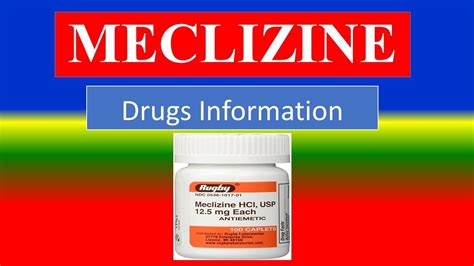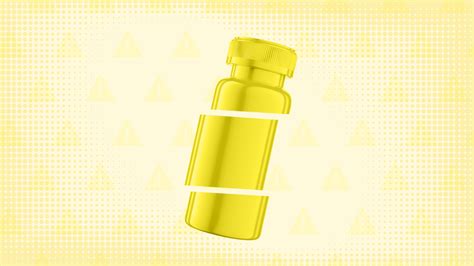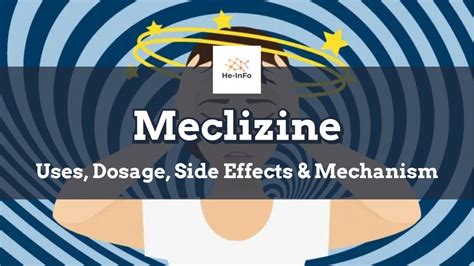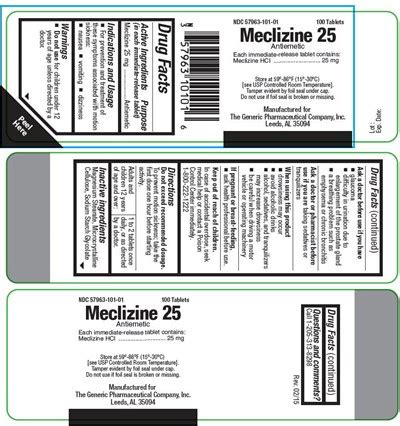Intro
Discover the potential risks of Meclizine, a medication used to treat motion sickness and vertigo. Learn about common Meclizine side effects, including drowsiness, dry mouth, and blurred vision, as well as rare but serious reactions such as allergic reactions and increased heart rate. Get informed to make safe treatment choices.
Meclizine, an antihistamine commonly used to treat motion sickness, vertigo, and dizziness, is a popular medication among travelers and individuals suffering from balance disorders. While it can provide relief from these conditions, meclizine can also cause a range of side effects, some of which can be severe. In this article, we will delve into the world of meclizine side effects, exploring the common, rare, and serious adverse reactions associated with this medication.

Meclizine's mechanism of action is not fully understood, but it is believed to work by blocking the action of histamine, a neurotransmitter involved in the regulation of balance and equilibrium. This blockade can lead to a range of effects, including drowsiness, dry mouth, and blurred vision. While these side effects are generally mild and temporary, they can be bothersome and, in some cases, severe.
Common Meclizine Side Effects
Meclizine's common side effects are typically mild and short-lived, resolving on their own within a few days of treatment. These include:
- Drowsiness and fatigue
- Dry mouth
- Blurred vision
- Headache
- Dizziness
- Nausea and vomiting
- Constipation

These side effects are usually dose-dependent, meaning that higher doses of meclizine are more likely to cause adverse reactions. However, individual tolerance to the medication can vary greatly, and some people may experience side effects at lower doses.
Rare Meclizine Side Effects
While rare, some meclizine side effects can be serious and require medical attention. These include:
- Allergic reactions, such as hives, itching, and difficulty breathing
- Seizures
- Hallucinations
- Confusion and disorientation
- Increased heart rate and blood pressure
- Urinary retention

If you experience any of these rare side effects, seek medical attention immediately. Your doctor may need to adjust your dosage or switch you to a different medication.
Serious Meclizine Side Effects
In rare cases, meclizine can cause serious side effects that require immediate medical attention. These include:
- Anaphylaxis, a life-threatening allergic reaction
- Stevens-Johnson syndrome, a severe skin and mucous membrane disorder
- Toxic epidermal necrolysis, a condition characterized by widespread skin blistering and peeling

If you experience any symptoms of these serious side effects, such as difficulty breathing, rapid heartbeat, or severe skin reactions, call emergency services or seek immediate medical attention.
Meclizine Interactions and Contraindications
Meclizine can interact with certain medications and worsen underlying medical conditions. It is essential to inform your doctor about all medications you are taking, including prescription and over-the-counter medications, vitamins, and supplements.
Meclizine can interact with:
- Sedatives and tranquilizers
- Antidepressants
- Antihistamines
- Decongestants
- Muscle relaxants

Meclizine is contraindicated in individuals with:
- Glaucoma
- Urinary retention
- Prostate enlargement
- Stomach ulcers
- Kidney disease
- Liver disease
Precautions and Warnings
Meclizine can impair cognitive and motor function, increasing the risk of accidents and injuries. It is essential to exercise caution when operating heavy machinery, driving, or engaging in activities that require alertness and attention.

Meclizine can also cause dependence and withdrawal symptoms, especially when used for extended periods. It is crucial to follow your doctor's instructions and gradually taper off the medication when discontinuing treatment.
Conclusion
Meclizine can be an effective medication for treating motion sickness, vertigo, and dizziness, but it can also cause a range of side effects, some of which can be severe. By understanding the common, rare, and serious side effects associated with meclizine, you can take steps to minimize your risk and ensure safe treatment.
If you have any questions or concerns about meclizine or its side effects, consult your doctor or pharmacist. They can provide personalized guidance and help you make informed decisions about your treatment.
What is meclizine used for?
+Meclizine is an antihistamine used to treat motion sickness, vertigo, and dizziness.
What are the common side effects of meclizine?
+Common side effects of meclizine include drowsiness, dry mouth, blurred vision, headache, dizziness, nausea, and vomiting.
Can meclizine cause serious side effects?
+Yes, meclizine can cause serious side effects, including anaphylaxis, Stevens-Johnson syndrome, and toxic epidermal necrolysis.
